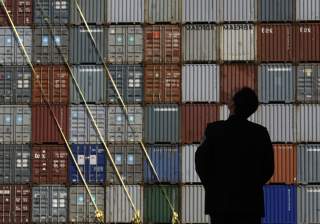China’s Political Economy After 40 Years of Reform
Entrepreneurs and consumers in Beijing may become the largest beneficiaries of Trump's trade war.
First, the top leadership might proactively make adjustments. Indeed, a return to Deng’s policies and political line would benefit everyone. Thus, it is the rational thing for the CCP to do, and the second retrenchment is therefore likely to end.
Of course, some people suspect that leaders are often irrational, especially authoritarian leaders who tend to only get the good news and no bad news. However, in the context of China, we know that even the most conservative CCP elites have a duality and subscribe to both Mao and Deng thoughts. Therefore, there is also an emotional basis for returning to Deng’s policies, so it does not have to rely on purely rational political calculations.
Second, elite revolt can also lead to adjustments. There are successful cases of this in both Soviet and PRC history.
Third, people may rely on the passage of time and wait for things to change. No one can hold onto power forever. This is a common way of adjustment in Chinese history.
We have already seen some signs of adjustments in the policy realm. For instance, the Chinese media today does not talk about trade war anymore. In media reporting, the term “trade war” has been replaced by “trade friction.” The tone of confrontation has decreased.
Xi has also given a series of talks in the past few weeks that he has used to repeatedly emphasize the importance of augmenting China’s private sector. Given both external and domestic pressures, China’s current administration has already started making adjustments, and more are expected to come in the near future.
Si Wu is the President of Unirule Institute of Economics, China's top independent think tank (since 2016). He was editor-in-chief of the prominent Chinese reformist journal Yanhuang Chunqiu, which is famous for its ability to publish highly-sensitive and influential analysis of Chinese politics. Mr. Wu is also the author of several bestsellers in China, most notably Hidden Rules, which provides the seminal analysis on the roles conventions and guanxi play in Chinese politics.
George Yin is a Dickey Postdoctoral Fellow in U.S. Foreign Policy and International Security and lecturer of government at Dartmouth College. He was a Samuel Huntington doctoral fellow at Harvard University before coming to Dartmouth.
The authors would like to thank William Reicher for his research assistance toward this piece.
Image: Reuters

